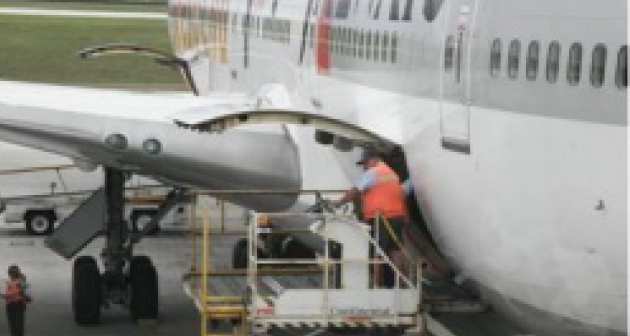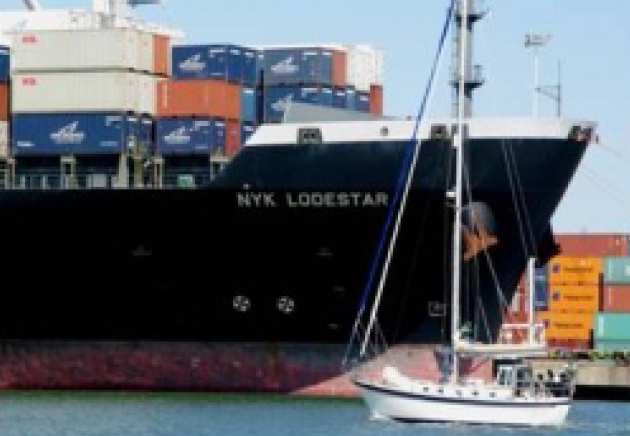 Fleet management is a business function that is concerned with the management of a company’s transportation fleet, including trucks, rail cars, ships and planes. Amongst the many goals of fleet management are the prudent investment in company vehicles, as well as the continuous improvement of the efficiency, effectiveness and safety of the existing fleet. It is estimated that with an effective fleet management system in place, companies can on average reduce their fleet size by 15-25%, reduce their maintenance costs by 10-20% and improve fuel consumption by 8-12% (Accenture: Federal Fleet Management).
Fleet management is a business function that is concerned with the management of a company’s transportation fleet, including trucks, rail cars, ships and planes. Amongst the many goals of fleet management are the prudent investment in company vehicles, as well as the continuous improvement of the efficiency, effectiveness and safety of the existing fleet. It is estimated that with an effective fleet management system in place, companies can on average reduce their fleet size by 15-25%, reduce their maintenance costs by 10-20% and improve fuel consumption by 8-12% (Accenture: Federal Fleet Management).
 Similar to other business functions, fleet management decisions are taken under considerable uncertainty about the current conditions and future market developments. Informed decision-making in fleet management therefore requires the collection and analysis of data from multiple sources, such as inventory levels, customer demands, traffic conditions and the state of the current fleet. Using the data, (sets of) probability distributions can be constructed that truthfully reflect important characteristics of the involved business processes.
Similar to other business functions, fleet management decisions are taken under considerable uncertainty about the current conditions and future market developments. Informed decision-making in fleet management therefore requires the collection and analysis of data from multiple sources, such as inventory levels, customer demands, traffic conditions and the state of the current fleet. Using the data, (sets of) probability distributions can be constructed that truthfully reflect important characteristics of the involved business processes.
 Decision-making under uncertainty has a long and distinguished history in operations research, with the origins dating back to the 50’s (Markov decision processes) and 60’s (stochastic programming). To date, the predominant paradigm is to model the uncertain data as random variables and then solve the decision problem by discretising the outcomes of these random variables. For multi-stage (i.e., dynamic) problems, this discretisation results in the classical curse of dimensionality, which implies that the computation times grow exponentially with problem size. This computational burden has been a major impediment to the applicability of these methods, and it became a wide-held belief that multi-stage decision-making under uncertainty is an inherently intractable endeavour.
Decision-making under uncertainty has a long and distinguished history in operations research, with the origins dating back to the 50’s (Markov decision processes) and 60’s (stochastic programming). To date, the predominant paradigm is to model the uncertain data as random variables and then solve the decision problem by discretising the outcomes of these random variables. For multi-stage (i.e., dynamic) problems, this discretisation results in the classical curse of dimensionality, which implies that the computation times grow exponentially with problem size. This computational burden has been a major impediment to the applicability of these methods, and it became a wide-held belief that multi-stage decision-making under uncertainty is an inherently intractable endeavour.
 Together with scientists from Athens University of Economics and Business, Carnegie Mellon University, Princeton University and Stevens Institute of Technology, researchers at the Data Science and Engineering Institute are developing models and tools to determine prudent fleet management decisions that allow for probabilistic guarantees in view of the uncertainty about future customer demands and traffic conditions. The focus is on the development of methods that do not discretise the involved probability distributions. The resulting methods avoid the curse of dimensionality and thus scale to industry-size problems.
Together with scientists from Athens University of Economics and Business, Carnegie Mellon University, Princeton University and Stevens Institute of Technology, researchers at the Data Science and Engineering Institute are developing models and tools to determine prudent fleet management decisions that allow for probabilistic guarantees in view of the uncertainty about future customer demands and traffic conditions. The focus is on the development of methods that do not discretise the involved probability distributions. The resulting methods avoid the curse of dimensionality and thus scale to industry-size problems.